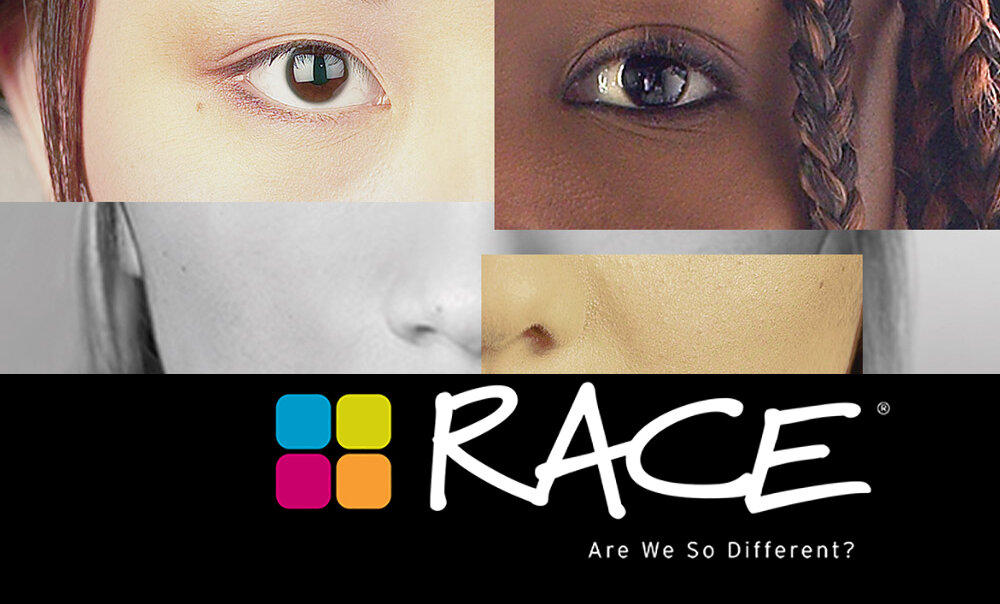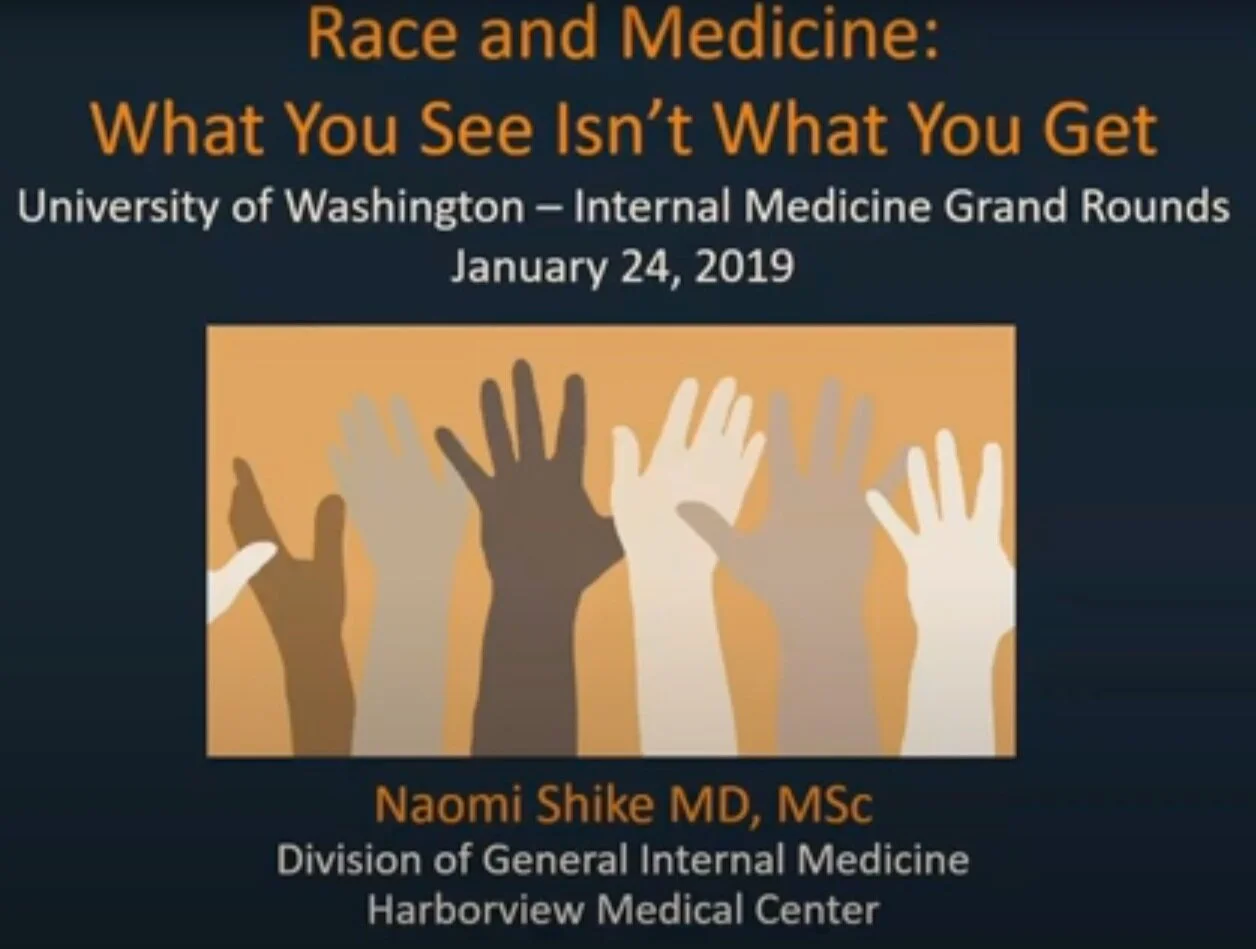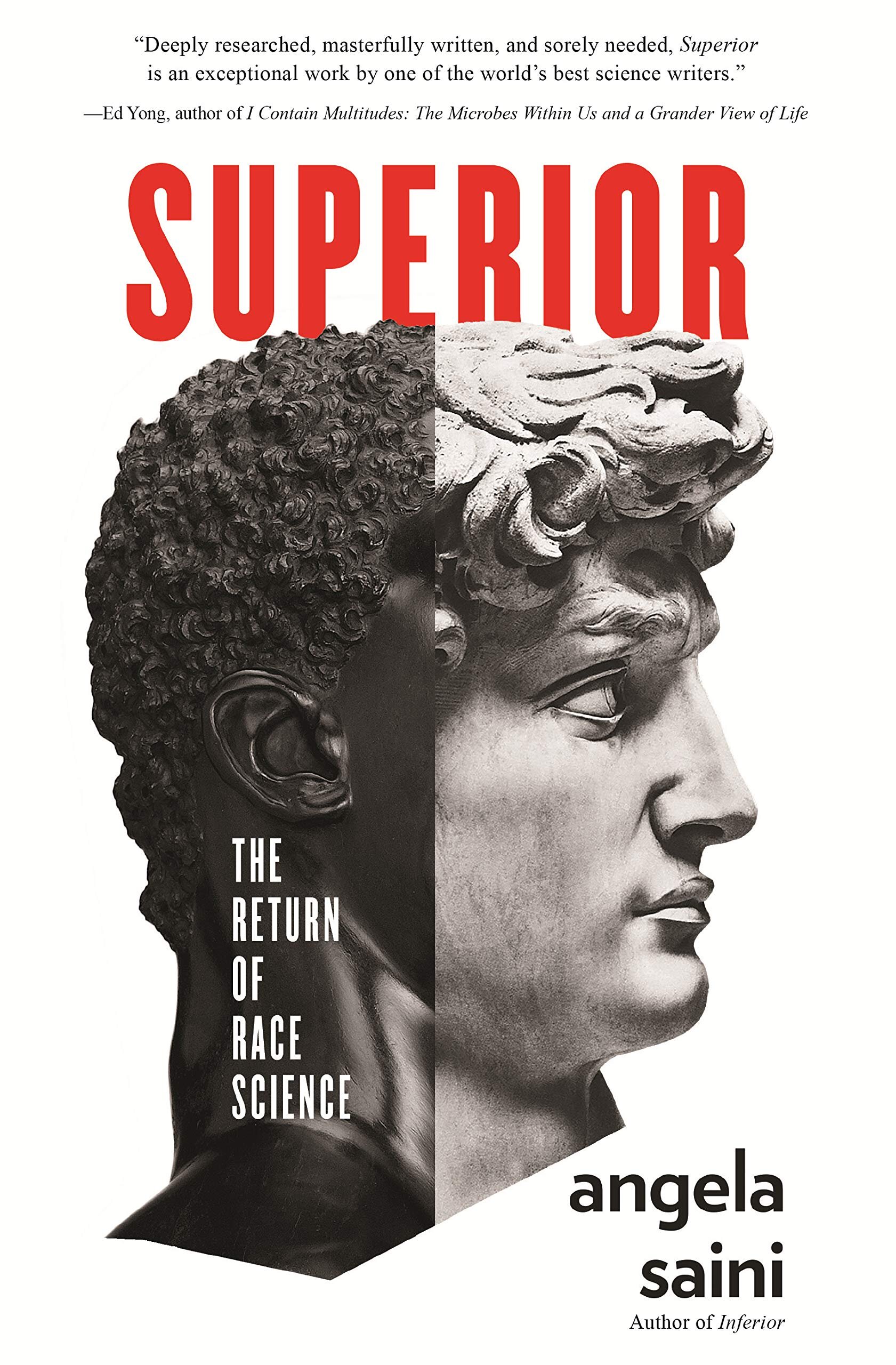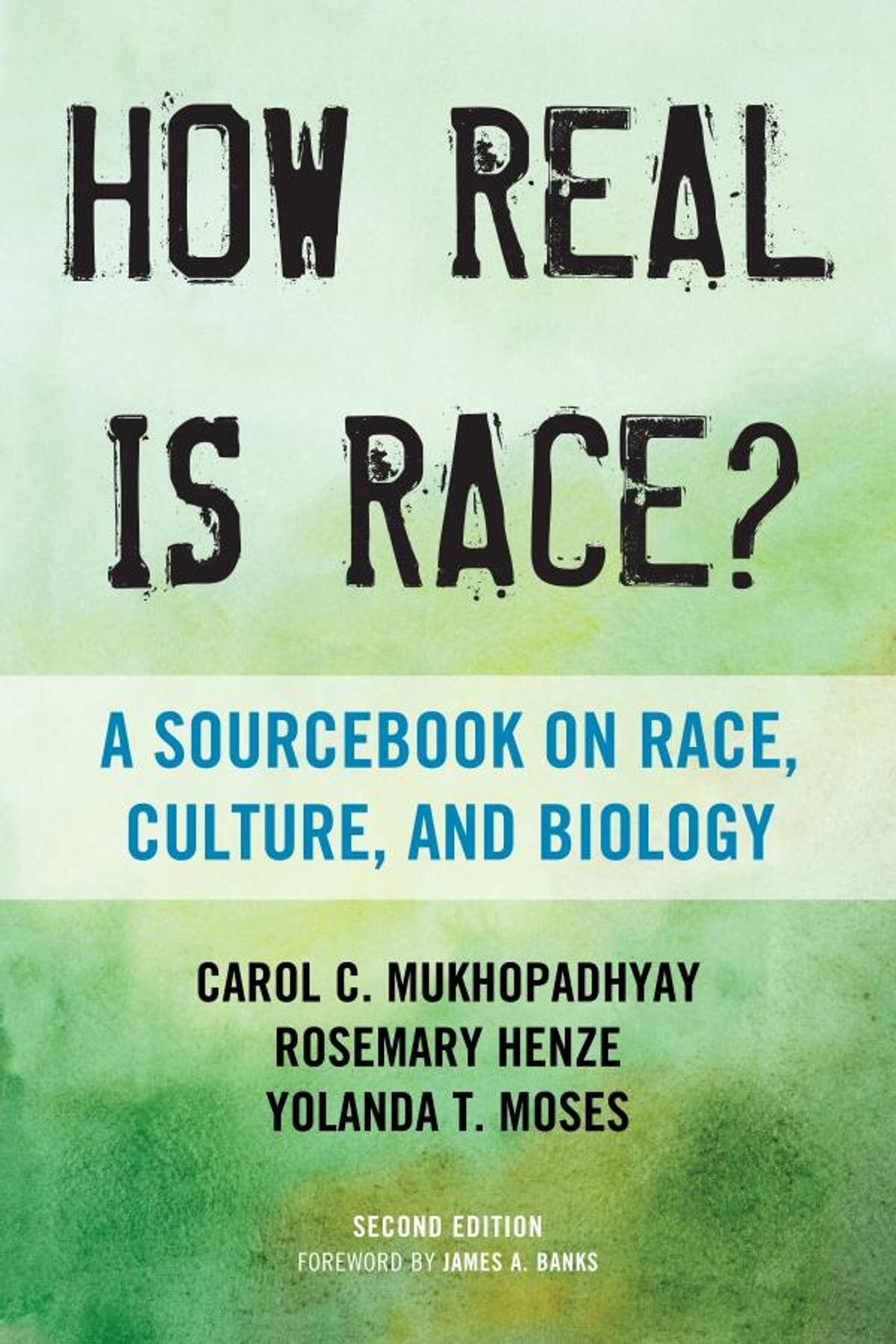“Reviewing the history of official racial classifications reminds us that these categories are not natural — and neither are the institutional inequities that race undergirds.”
This 3 minute video rapidly reviews the history of racial categories and points out the inherent problems and contradictions in its ongoing use.
Check out this 5 minute video from the American Anthropological Association (AAA) which briefly reviews the history of race as a concept.
The RACE Project seeks to expand current thinking about race and human variation and encourage an integrative and comprehensive view of this complex topic. This collaboration between the American Anthropological Association and the Science Museum of Minnesota includes a nationally traveling exhibition to tell the stories of race from the biological, cultural, and historical points of view. Their webpage is full of rich resources including videos and thought provoking activities.
“‘There’s no such thing as race in Homo sapiens. . . There’s no place [in our genes] where you can draw a line and say there’s a major difference on one side of the line from what’s on the other side.’ To say that race is a social construction is to emphasize that in most cases, racial categories based upon phenotype (physical appearance) ultimately provide a poor way to proxy individual genotype, or genetic variations that may be exclusive to certain populations.”
Dorothy Roberts
The Problem with Race-Based Medicine
Dorothy Roberts is an acclaimed scholar of race, gender, and the law.
The division of the world's peoples into distinct groups - "red," "black," "white" or "yellow" peoples - has became so deeply imbedded in our psyches, so widely accepted, many would promptly dismiss as crazy any suggestion of its falsity. Yet, that's exactly what this provocative three-hour series by California Newsreel claims. Race - The Power of an Illusion questions the very idea of race as biology, suggesting that a belief in race is no more sound than believing that the sun revolves around the earth. Yet race still matters. Just because race doesn't exist in biology doesn't mean it doesn’t have very real impacts on people’s lives.
One of the leading authorities on race and science, Troy Duster discusses how the understanding of race is being reshaped by the genomics revolution. Sometimes unintentionally and sometimes not so innocently, genomics may be generating a new and more sophisticated racism, not so different from the eugenics-based and criminological racism that flourished in decades gone by. Presentation from “Voices” on UCTV - April 25, 2007.
Should Biologists Stop Grouping Us By Race?
Race is a poor proxy for human genetic differences and should no longer be used by researchers, says a paper in the journal Science. While the original article is not free, this reviewing article discusses the findings.
Playing the Gene Card?
This report from the Center for Genetics and Society looks at how DNA-based products many have important benefits, but may be simultaneously be setting back our efforts toward racial justice. Playing the Gene Card? focuses on three biotech products that may have particular risks for African American and other minority communities:
Race-specific drugs
Genetic ancestry tests
DNA forensics and DNA databases
“The biological fact of race and the myth of ‘race’ should be distinguished. For all practical social purposes, ‘race’ is not so much a biological phenomenon as a social myth [which has] created an enormous amount of human and social damage.”
These podcasts from Dig: A History Podcast, discuss how racist ideas intertwined with science many years ago. They discuss examples of how white scientists used science to “confirm” their ideas of superiority, and provide examples of how that manifested in the past and continues to influence science and society today.
Books
A decade after the Human Genome Project proved that human beings are not naturally divided by race, the emerging fields of personalized medicine, reproductive technologies, genetic genealogy, and DNA databanks are attempting to resuscitate race as a biological category written in our genes. In Fatal Invention, leading legal scholar and social critic Dorothy Roberts argues that America is once again at the brink of a virulent outbreak of classifying populations by race. By searching for differences at the molecular level, a new racial science is obscuring racism in our society and legitimizing state brutality against communities of color at a time when America claims to be post-racial.
Every arena of science has its own flash-point issues―chemistry and poison gas, physics and the atom bomb―and genetics has had a troubled history with race. As Jonathan Marks reveals, this dangerous relationship rumbles on to this day, still leaving plenty of leeway for a belief in the basic natural inequality of races.
The eugenic science of the early twentieth century and the commodified genomic science of today are unified by the mistaken belief that human races are naturalistic categories. Yet their boundaries are founded neither in biology nor in genetics and, not being a formal scientific concept, race is largely not accessible to the scientist. As Marks argues, race can only be grasped through the humanities: historically, experientially, politically.
In Is Science Racist?, Jonathan Marks explores the persistence and legacy of scientific racism, which misappropriates the authority of science and undermines it by converting it into a social weapon.
Superior tells the disturbing story of the persistent thread of belief in biological racial differences in the world of science.
Dissecting the statements and work of contemporary scientists studying human biodiversity, most of whom claim to be just following the data, Angela Saini shows us how, again and again, even mainstream scientists cling to the idea that race is biologically real. As our understanding of complex traits like intelligence, and the effects of environmental and cultural influences on human beings, from the molecular level on up, grows, the hope of finding simple genetic differences between “races”—to explain differing rates of disease, to explain poverty or test scores, or to justify cultural assumptions—stubbornly persists.
Superior is a rigorous, much-needed examination of the insidious and destructive nature of race science—and a powerful reminder that, biologically, we are all far more alike than different.
This Nature article reviews the book and provides an overview.
In Native American DNA, Kim TallBear shows how DNA testing is a powerful—and problematic—scientific process that is useful in determining close biological relatives. But tribal membership is a legal category that has developed in dependence on certain social understandings and historical contexts, a set of concepts that entangles genetic information in a web of family relations, reservation histories, tribal rules, and government regulations. At a larger level, TallBear asserts, the “markers” that are identified and applied to specific groups such as Native American tribes bear the imprints of the cultural, racial, ethnic, national, and even tribal misinterpretations of the humans who study them.
TallBear notes that ideas about racial science, which informed white definitions of tribes in the nineteenth century, are unfortunately being revived in twenty-first-century laboratories.
“Time and again, science provided the intellectual authority for racism, just as it had helped define race to begin with.”
How Real is Race? What is biological fact, what is fiction, and where does culture enter? What do we mean by a “colorblind” or “postracial” society, or when we say that race is a “social construction”? If race is an invention, can we eliminate it? This book, now in its second edition, employs an activity-oriented approach to address these questions and engage readers in unraveling—and rethinking—the contradictory messages we so often hear about race.
The authors systematically cover the myth of race as biology and the reality of race as a cultural invention, drawing on biocultural and cross-cultural perspectives. They then extend the discussion to hot-button issues that arise in tandem with the concept of race, such as educational inequalities; slurs and racialized labels; and interracial relationships. In so doing, they shed light on the intricate, dynamic interplay among race, culture, and biology.
For an online supplement to How Real Is Race? Second Edition, click here.
Race has provided the rationale and excuse for some of the worst atrocities in human history. Yet, according to many biologists, physical anthropologists, and geneticists, there is no valid scientific justification for the concept of race.
To be more precise, although there is clearly some physical basis for the variations that underlie perceptions of race, clear boundaries among “races” remain highly elusive from a purely biological standpoint. Differences among human populations that people intuitively view as “racial” are not only superficial but are also of astonishingly recent origin.
In Race? Debunking a Scientific Myth, physical anthropologist Ian Tattersall and geneticist Rob DeSalle, both senior scholars from the American Museum of Natural History, explain what human races actually are—and are not—and place them within the wider perspective of natural diversity. They explain that the relative isolation of local populations of the newly evolved human species during the last Ice Age—when Homo sapiens was spreading across the world from an African point of origin—has now begun to reverse itself, as differentiated human populations come back into contact and interbreed.
The overarching message of Race? Debunking a Scientific Myth is that scientifically speaking, there is nothing special about racial variation within the human species.
The Myth of Race deals concisely with a wide range of topics, from how the concept of race differs in different cultures and race relations in the United States, to IQ tests and the census. It draws on scientific knowledge to topple a series of myths that pass as facts, correct false assumptions, and clarify cultural misunderstandings about the highly charged topic of race.
The book demonstrates that the apparently straightforward concept of race is actually a confused mixture of two different concepts; and the confusion often leads to miscommunication. The first concept, biological race, simply doesn’t exist in the human species. Instead, what exists is gradual variation in what people look like (e.g., skin color and facial features) and in their genes, as you travel around the planet--with more distant populations appearing more different than closer ones. If you travel in different directions, the populations look different in different ways. The second concept, social race, is a set of cultural categories for labeling people based on how their ancestors were classified, selected aspects of what they look like, or various combinations of both. These sets of categories vary widely from one culture to another.
What does science say about race? In Everyone is African a distinguished research geneticist presents abundant evidence showing that traditional notions about distinct racial differences have little scientific foundation.In short, racism is not just morally wrong; it has no basis in fact.The author lucidly describes in detail the factors that have led to the current scientific consensus about race. Both geneticists and anthropologists now generally agree that the human species originated in sub-Saharan Africa and darkly pigmented skin was the ancestral state of humanity. Moreover, worldwide human diversity is so complex that discrete races cannot be genetically defined. And for individuals, ancestry is more scientifically meaningful than race.Separate chapters are devoted to controversial topics: skin color and the scientific reasons for the differences; why ancestry is more important to individual health than race; intelligence and human diversity; and evolutionary perspectives on the persistence of racism.This is an enlightening book that goes a long way toward dispelling the irrational notions at the heart of racism.










